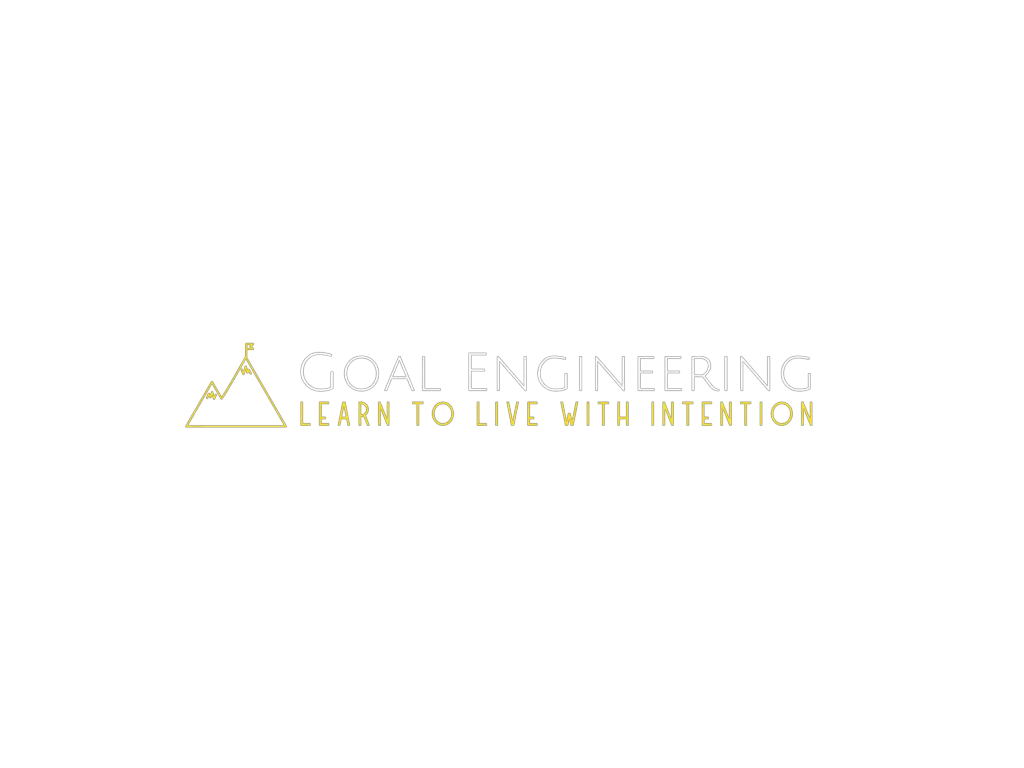It’s odd to me that in 2021 I’m seeing a lot of people struggle with motivation. I’m having the same difficulties myself and it doesn’t make much sense. Shouldn’t it have been harder during the chaos of 2020? I’m still trying to figure it out but I do know that a lack of motivation can strike at any time. I’ve learned, though, that it doesn’t have to surprise you if you know what to do when you have goals but no motivation.
Try these four things when you’ve got goals but don’t have motivation:
- Just begin. Motivation comes from action more than thinking.
- Examine why you’re unmotivated. Do you need a break?
- Quit your goals and set ones that are intrinsically motivating.
- Set less and smaller, but better goals.
These are based on what I’ve seen work for myself and other ambitious people I know. They tap into the real secret of success, which is actually being kinder to yourself rather than pushing harder.
1. Just Start
“It is easier to act yourself into a new way of thinking, than it is to think yourself into a new way of acting.” ― Millard Fuller
A couple of days ago I was having the hardest time getting going. Even my morning routine was tough to get through. I lacked motivation, and it didn’t seem to be coming no matter what I thought.
This continued until I remembered how I felt the last time I’d completed my run, reading, and blog post for the day. I recognized that I only felt good after I’d started.
So instead of trying to think my way out of how I felt, I acted my way out. And it worked! Within minutes of beginning my run, I had already started to feel better. The upward spiral continued as I did my morning meditation and wrote a blog post.
The feeling I had, and the motivation I felt during and after these actions, was completely opposite to the sadness I’d felt before I began.
The problem with motivation is that we usually wait for it to come to us, expecting it will arrive from some external source. The truth about motivation, though, is that it comes from inside of us as we act.
There’s nothing flashy or fancy about this. It’s not complicated. It’s the reason why Nike’s slogan “Just Do It” is so popular.
All it really takes is dropping all your current thinking patterns and zeroing in on the only thing that matters―action.
You can set a rule for yourself to stick to this, and it’s known as the 5-second rule. Mel Robbins came up with this and wrote a bestselling book that summarizes it and how it changed her life.
Before the 5 second rule, Robbins was having a really hard time and felt stuck. She couldn’t get out of bed most days.
Then one night she saw a TV commercial that included a rocket launch counting down from 5 before the launch. The next morning she remembered what she’d seen and said to herself that she’d countdown from 5 and then get up.
When she finished her countdown, she stood up. She’d finally beaten the snooze, and the rut she was in, for the first day in a long time! And she did it again the next day, the day after that, and every day since.
Robbins used the 5-second rule to get out of that really tough time, and you can use it to get out of your struggles with motivation, too.
The reason this works is that overthinking, or lack of motivation as you might know it, comes from the emotional part of your brain. Doing nothing leads to mulling over all the negatives and struggles, which kills motivation.
You know logically what you should do, but that part of your brain is disengaged. By counting down and just starting, you re-engage your logical brain so you can act, which will beat overthinking and give your emotional brain the motivation you seek.
Another word for this is an action mindset, which you can learn more about right here.
It doesn’t matter how much you worry or fear, or how little motivation you have. Just count down from 5 or 3 or even 1 and then just do it.
“Work is an antidote for anxiety, an ointment for sorrow, and a doorway to possibility” ― Dieter Uchtdorf
2. Find Out Why You Lack Motivation
“Research shows that we need to take a break and decompress so we can be at our best at work—and at home. Maybe we should ask if the life we’re working so hard to create is fun to live? When’s the last time you disconnected and took a vacation?” ― Tina Hallis
Taking action isn’t always the right path. If you’re burnt out, you’ll take action and find temporary motivation, but then feel worse.
2020 was a hard year for all of us. It was so difficult for me that I needed to get some help with my mental health. While talking with my doctor, he explained something I hadn’t thought about before.
He said that most people can handle about two major life or world events before their emotional health starts to take a hit. In 2020 I’d had at least five, including a new baby, graduating, buying a house, the pandemic, and the election. So it made perfect sense to him that I’d need some help.
I looked into it more and realized that the mechanism by which your mind starts to say “no more” is similar to how your body reacts when it’s put under the stress of an infection.
The body increases its temperature to try to kill the infection. Other immune system reactions lead to a sore throat, stuffy nose, and more. Your body slows down so it can focus its energy on dealing with the threat.
Your mind does the same thing when it gets overloaded. It’s harder to do the things that you think you “should” do because your mind needs a break. And it protests until you take it easy for a time.
In short, you need breaks if you want to get motivation and maintain it. If you’ve been through a lot recently, go easy on yourself. The motivation will come back. And you won’t get as far behind as you think. You’ll probably end up getting ahead even.
“Taking a break can lead to breakthroughs.” ― Russell Eric Dobda
3. Change Your Goals to Be More Motivating
“Winners quit all the time. They just quit the right stuff at the right time.” ― Seth Godin
A lot of the time you set goals that aren’t what you want but what you think you should want. Society and your family and friends have a significant influence on your decisions, which can be overwhelmingly positive sometimes.
But there are times when you get pushed into a goal that isn’t really aligned with your personal values. And when you’re striving to reach someone else’s ideal version of yourself, it’s tough to find the motivation you need to stick to your goals.
Re-evaluate your goals and ask yourself if they’re what you really want. Are you striving for these goals because you aspire to them, or because somebody else set them for you?
If you find that your goals are misaligned with what you really want, change them! To then set the goals that are right for you, you need to understand the different sources of motivation.
There are two types of motivation:
- Intrinsic motivation, which is when you want to do something for the joy of doing it. Playing a game of basketball with your friends simply because you like basketball is one example.
- Extrinsic motivation, or when you’re excited about an end goal so your actions and thoughts all point to that outcome. This would be like playing basketball only because you want to be healthy or win a championship.
Nothing you do is fully one or the other. Even within our basketball example, you might play because you like the game and you want to be healthy or win a game.
This is where the most powerful goals and motivations come from. To get here, you have to know yourself but also experiment. Start by applying the “just start” principle from earlier. After working toward your goal, analyze to determine what’s intrinsically motivating for you.
To take advantage of intrinsic motivation, you’re going to have to quit some goals that aren’t working for you.
For instance, I hear all the time about people who hate running but set the goal to go do it a few times per week because they want to stay healthy. If they’d get out of the mindset that healthy=running, they’d see that there are a lot of ways they can still be healthy.
Walking counts, and so does dancing. You can swim, hike, bike, or do just about anything that gets you moving. Many of the oldest living people in the world simply tend to a garden and it keeps them fit enough to live long!
Do what you love, what lights you up inside, and what aligns with your deepest values for all of your goals. You’ll find a well of motivation bigger than you could ever imagine.
4. Set Less, Smaller, and Better Goals
“Perfectionism always makes things harder and more complicated. Finishers make things easier and simpler. The next time you work on a goal, I dare you to ask the following questions during the middle of the project: Could things be easier? Could things be simpler?” ― Jon Acuff
What would it look like if the goals you were working on right now were easy?
If you were to say to your friend “this is way easier than I thought it would be!” what would it have been that made it so easy?
Tim Ferriss (author of The 4-Hour Workweek) asked this question to Pat Flynn when Pat was struggling to create his podcasting course. Pat used this idea to change his methods and went on to (easily!) create a course that’s done almost $2 million in sales!
You can ask yourself this question of any area of life, whether it’s business, relationships, or health.
I asked myself this question last week about taking my family camping and it made it way better. Instead of planning a dinner we could make while there and stressing about setting up camp while cooking and watching our kids, we just got pizza and went up the canyon near our home. It was a blast because we made it so much easier!
My favorite way to make my goals easier is by setting less but more focused goals. I only set about four goals at any given time and focus on the main areas of life:
- Spirituality
- Relationships
- Finances
- Fitness
I do this because I know that a balanced life is a happy life. The easiest way to flourish is making sure each of these areas is healthy. If you’re financially free but push people away, you’re not going to be happy. But when you connect with others and work hard you find true fulfillment.
Set smaller goals as well. Give yourself more time to lose that extra weight or increase your income. Staying consistent is far more important for maintaining motivation than going big.
Aiming too high leads to falling short, which kills your motivation. But when you start small you’re more likely to actually start and keep going.
The Main Points
It’s no fun when you have goals but no motivation. But you’re not alone, it happens to all of us. A lack of motivation can strike at any time, but if you’re prepared, you will make it through to reach your dreams.
Here are the four ways you can get motivation back:
- Just start
- Find out if you need a break
- Quit goals that aren’t working for you
- Set less, smaller, and better goals





